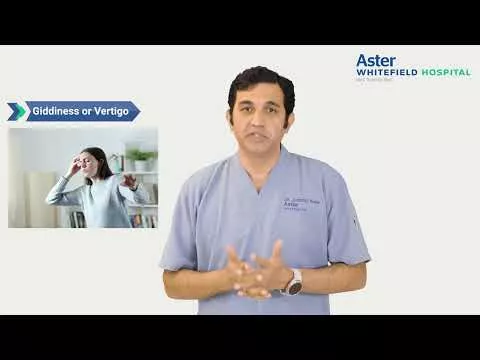A runny nose or a slight headache is usually dismissed as a seasonal problem. However, in case these symptoms are prolonged or aggravated, then they may be indicators of sinusitis. Understanding the distinction between a sinus problem and a common cold will enable you to take action early before it is too late. Thus, it is necessary to know the main symptoms of sinusitis and the factors that provoke it to effectively diagnose and treat it in time.
Sinusitis is an inflammation or swelling of the tissue that lines the sinuses. It results in the accumulation of mucus, which brings about pressure, pain, and even infection. Most sinus infections are mild, but some of them may be chronic and disrupt your quality of life. This is the reason why early warning signs should be identified.
What Are Sinuses and Why Do They Matter
Sinuses are hollow air-filled spaces in the skull located behind the forehead, cheeks, and eyes. They help filter and humidify the air you breathe. Under normal conditions, sinuses are lined with mucus that drains into the nose.
But when this drainage is blocked, it leads to inflammation and infection. Sinusitis can be acute, lasting a few days to a week, or chronic, lasting more than 12 weeks. It can also recur frequently in some individuals.
Common Sinusitis Symptoms
Recognizing the early signs can help prevent complications. Here are some sinusitis symptoms that should not be ignored:
● Nasal congestion that lasts more than a week
● Thick yellow or green mucus from the nose
● Pressure or pain around the eyes, cheeks, or forehead
● A headache that gets worse when bending forward
● Reduced sense of smell or taste
● Postnasal drip (mucus running down the throat)
● Bad breath or a sour taste in the mouth
● Tooth pain in the upper jaw
● Fever or fatigue in more severe cases
If you experience several of these symptoms together, especially for more than a few days, it may not be a regular cold. Consult a specialist to confirm if sinusitis is the cause.
Sinusitis Causes You Should Know
There are several sinusitis causes that trigger inflammation or infection in the sinuses. These include:
● Viral infections that last beyond a normal cold
● Bacterial infections following a cold or allergy
● Nasal polyps or growths that block drainage
● A deviated nasal septum that affects airflow
● Allergies that cause ongoing inflammation
● Exposure to pollutants, smoke, or strong chemicals
● Weak immune response or frequent respiratory infections
Some people are more prone to sinusitis due to their anatomy or lifestyle. If you have seasonal allergies, asthma, or live in a highly polluted area, your chances of developing sinusitis increase.
When to See a Doctor
While many cases of sinusitis clear up on their own, there are times when professional care becomes necessary. You should see an ENT specialist if:
● Symptoms last longer than ten days
● Pain becomes severe or spreads to the eyes or forehead
● Fever is high or persistent
● You have repeated episodes of sinusitis
● Vision becomes blurred, or you experience swelling around the eyes
● Over-the-counter medication offers no relief
Delaying treatment can cause the infection to spread and result in complications such as chronic sinusitis or even sinus-related eye issues.
Diagnosis and Treatment
An ENT doctor will examine your nose and face, ask about your symptoms, and may recommend imaging tests like an X-ray or CT scan to check the condition of your sinuses. Nasal endoscopy might also be used to look inside your nasal passages using a thin tube with a camera. Treatment depends on the cause and severity of the condition. Mild cases may require:
● Nasal decongestant sprays
● Saline nasal rinses
● Antihistamines for allergy-related sinusitis
● Pain relievers to reduce pressure and discomfort
If bacterial infection is suspected, antibiotics may be prescribed. For chronic or severe cases, your doctor may suggest advanced care options at a trusted ENT hospital. These can include steroid sprays, allergy management, or even surgery to correct structural issues.
Lifestyle Tips to Prevent Sinus Infections
Prevention is always better than a cure. Here are some simple steps to reduce your risk of sinus problems:
● Stay hydrated to keep mucus thin and flowing
● Use a humidifier in dry environments
● Avoid smoke, dust, and strong chemical exposure
● Manage allergies through regular treatment
● Wash your hands frequently to prevent infections
● Use saline sprays during flu season to keep sinuses moist
Maintaining sinus hygiene and treating colds promptly can go a long way in keeping sinus issues at bay.
Choosing the Right Hospital for Sinus Care
If you are struggling with recurring sinus issues, consult an experienced specialist at a reputed ENT hospital. These hospitals offer comprehensive diagnostic tools, skilled ENT surgeons, and advanced treatment plans tailored to your needs.
A well-equipped hospital can handle everything from mild infections to complex sinus surgeries with precision and care. Timely intervention improves recovery and reduces the risk of complications.
Conclusion
Sinus problems may start small but can escalate if ignored. Recognizing sinusitis symptoms can help you act before things get worse. Do not treat persistent nasal issues lightly. With the support of a skilled ENT specialist and the care offered at a top ENT hospital, you can breathe easier and avoid long-term discomfort. Early diagnosis leads to faster recovery and better outcomes.











